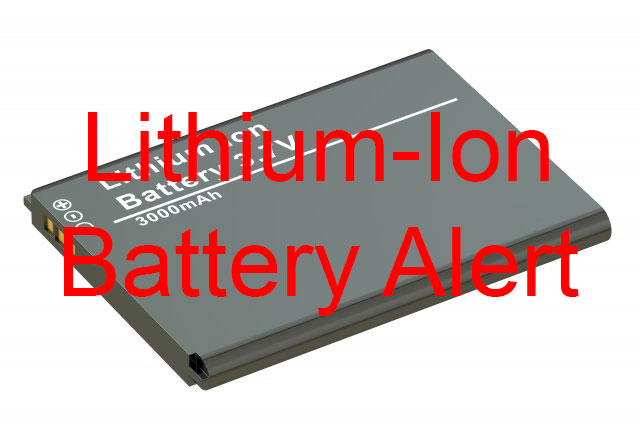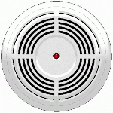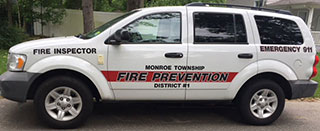Home
Welcome to the Monroe Township Fire District #1 website! Click on one of the links below to access the Smoke Detector Application or Board of Fire Commissioners websites.
|
Per Ordinance No. O-8-2020-015: Required PayPal Transaction Fees: 2.9% + $0.30 per transaction |
|
Application for These Type 1 Permits:
|
 Board of Fire Commissioners Click here for a special video message from our Fire Company. |
Click here for Grilling Fire Safety Tips
Click here for Mulch Fire Safety Tips

Teachers: Click here to access the Fire Prevention Lessons and videos.
In case you were wondering, click here for a message about our Fire Sirens
Special Warning: Stop buying male-to-male cords on Amazon
Fire Prevention Tips
The State Fire Marshal advises the following fire safety steps should be followed:
- Install smoke alarms in every bedroom, outside each separate sleeping area, and on every level of the home, including the basement.
- Smoke alarms with non-replaceable (long-life) batteries are designed to remain effective for up to 10 years. If the alarm chirps, warning that the battery is low, replace the entire smoke alarm right away.
- Be sure the smoke alarm includes the label of a recognized testing laboratory.
- Replace smoke alarms every 10 years. They should always be replaced with 10-year sealed battery models.
- Test smoke alarms at least once per month.
- Develop and practice a home escape plan with all members of the household.
- Close interior doors before retiring for the evening.
- Check the exhaust screen on home clothes dryers and remove accumulated lint, which is a common fire hazard in the home.
In the event of a fire in your home, Fire Marshal Mikutsky reminds residents to close the door behind them, which can buy time in a fire. He states the following:
- A closed door can hold back fire’s heat. In tests, an open-door room reached dangerous temperatures while a closed-door room stayed under 100° F.
- A fire needs oxygen to burn. Don’t let it take yours! A closed door can keep more oxygen in the room – and away from the fire – so you can breathe better.
- Closing the bedroom door at night could give you more time to react to if the smoke alarm sounds.
- A closed door can help slow fire’s spread and keep dangerous smoke away from you.
- Because of the plastics in most modern furniture and household items, fire is more toxic, burns hotter, and spreads much faster than ever before.
- A fire needs heat, fuel, and oxygen to exist. Closing the door when exiting a burning structure can cut off the oxygen and slow the growth of fire.
As we continue to experience frigid temperatures, there may be a need to use space heaters or alternative heating devices. The Division offers the following safety tips and precautions about home heating equipment:
- Keep anything that can burn at least three feet away from heating equipment, such as the furnace, fireplace, wood stove, or portable space heater.
- Create a three-foot “kid-free zone” around open fires and space heaters.
- Never use your oven or stovetop to heat your home.
- Have a qualified professional install stationary heating equipment, water heaters, or central heating equipment according to the local codes and manufacturer’s instructions.
- Have heating equipment and chimneys cleaned and inspected every year by a qualified professional.
- Remember to turn portable space heaters off when leaving the room or going to bed.
- Always use the right kind of fuel, specified by the manufacturer, for fuel burning space heaters.
- Make sure the fireplace has a sturdy screen to stop sparks from flying into the room. Ashes should be cool before putting them in a metal container. Keep the container a safe distance away from your home.
- Look for an independent lab label such as UL, which set minimum safety standards for manufacture.
- Plug space heaters directly into wall outlets. Never use with a household extension cord. Make sure the device has a “tip over” switch that turns the heater off if it’s knocked over.
- Never run any size cord, extension or hard wired, under a rug where damage can occur unnoticed.





